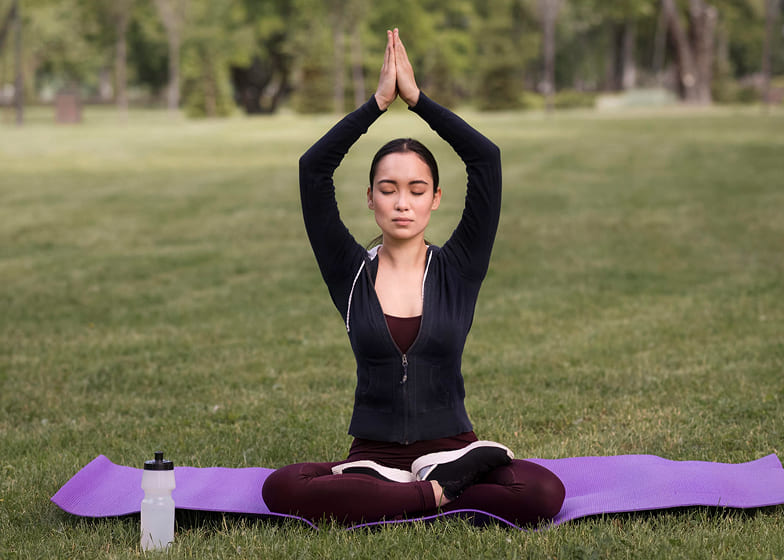Stress is an inevitable part of life, but how we manage it can significantly affect our physical and mental well-being. Chronic stress can lead to a variety of health problems, including high blood pressure, weakened immunity, anxiety, and depression. Effective stress management is therefore essential for maintaining balance, improving focus, and enhancing overall quality of life. By adopting proven techniques, individuals can reduce the negative impact of stress and cultivate resilience in their daily lives.
One of the most effective methods for managing stress is mindfulness and meditation. These practices encourage individuals to focus on the present moment, reducing anxiety and calming the mind. Simple techniques, such as deep breathing exercises, progressive muscle relaxation, or guided meditation, can help lower cortisol levels, slow heart rate, and promote a sense of inner peace. Even dedicating just 10–15 minutes a day to mindfulness can create noticeable improvements in stress levels and mental clarity.
Physical activity is another highly effective stress reliever. Exercise triggers the release of endorphins, the body’s natural “feel-good” chemicals, which improve mood and reduce tension. Activities like walking, jogging, yoga, or strength training not only provide physical benefits but also serve as an outlet for pent-up energy and negative emotions. Regular exercise strengthens both body and mind, helping individuals respond to stress with greater resilience.
Finally, developing healthy coping strategies and lifestyle habits is crucial for long-term stress management. This includes maintaining a balanced diet, getting sufficient sleep, setting realistic goals, and nurturing supportive social connections. Engaging in hobbies, spending time in nature, or simply taking breaks throughout the day can also help restore energy and maintain emotional equilibrium. By combining mindfulness, physical activity, and positive lifestyle choices, individuals can effectively manage stress and improve overall well-being.
Stress Management Techniques That Actually Work
Mindfulness and Meditation
Focus on the Present Moment
Mindfulness is the practice of paying attention to the present rather than dwelling on the past or worrying about the future. Focusing on current experiences—like breathing, bodily sensations, or surroundings—helps reduce mental clutter and promotes calmness.
For example, during a stressful workday, taking a few minutes to notice your posture, breathing rhythm, or ambient sounds can create a mental pause, reducing tension. This practice also improves focus, making daily tasks more manageable.
Over time, mindfulness fosters emotional regulation, allowing individuals to respond to challenges rather than react impulsively. Consistent practice strengthens self-awareness and enhances overall mental clarity.
Deep Breathing Exercises
Deep breathing exercises activate the parasympathetic nervous system, which counteracts the “fight-or-flight” stress response. Techniques like diaphragmatic breathing or the 4-7-8 method help slow the heart rate and reduce cortisol levels.
Even a few minutes of focused deep breathing can provide immediate relief in stressful situations. For instance, pausing to take slow, controlled breaths before a meeting or presentation can improve composure and focus.
Additionally, deep breathing increases oxygen flow to the brain, enhancing mental clarity and reducing feelings of overwhelm. Incorporating these exercises into daily routines strengthens resilience to stress over time.
Guided Meditation and Relaxation Practices
Guided meditation uses instructions—via apps, recordings, or live sessions—to achieve mental relaxation. This technique helps individuals focus attention, release tension, and calm the mind.
Short daily sessions of 10–15 minutes, involving visualization, body scans, or progressive muscle relaxation, train the brain to manage stress more effectively. Regular practice reduces anxiety, improves mood, and promotes emotional stability.
Long-term benefits include increased resilience, better decision-making under pressure, and enhanced ability to maintain calm during stressful situations.
Physical Activity
Release of Endorphins
Exercise naturally boosts endorphin production, the body’s “feel-good” chemicals, which enhance mood and reduce stress. Activities like running, swimming, or dancing stimulate endorphin release, promoting a sense of well-being.
Regular physical activity also improves energy levels, making it easier to face daily challenges without becoming overwhelmed. Over time, exercise reduces the frequency and intensity of stress responses.
Furthermore, exercise supports cardiovascular health and overall stamina, allowing the body to better handle physiological effects of stress.
Outlet for Tension and Energy
Stress often manifests physically as muscle tension or restlessness. Exercise provides a healthy outlet to release this energy. For example, yoga, jogging, or strength training helps reduce physical tension while promoting mental relaxation.
Channeling stress through movement prevents it from building internally and impacting mood. Activities like dancing or martial arts also combine physical exertion with mental focus, further reducing stress.
Group sports or fitness classes additionally provide social interaction, creating positive reinforcement and enhancing emotional well-being.
Improved Sleep and Cognitive Function
Exercise promotes deeper, restorative sleep, which is critical for stress recovery. Poor sleep increases cortisol levels, heightening sensitivity to stress.
Physical activity also improves cognitive functions like memory, focus, and problem-solving. Well-rested and active brains are more resilient, handling challenges calmly and efficiently.
Even light exercises, such as walking or stretching, enhance sleep quality and reduce mental strain, making it easier to maintain composure throughout the day.
Healthy Lifestyle Choices
Balanced Nutrition
A nutrient-rich diet stabilizes energy levels and supports mental health. Incorporating fruits, vegetables, lean proteins, and whole grains reduces mood swings and improves resilience to stress.
Avoiding excessive sugar, caffeine, and processed foods prevents energy crashes and irritability. Foods rich in magnesium, like leafy greens, nuts, and seeds, help relax muscles and ease tension.
Proper hydration is also essential. Even mild dehydration can increase fatigue and amplify stress, so maintaining consistent water intake supports overall mental and physical performance.
Adequate Sleep
Sleep is critical for emotional and physical recovery. Consistently getting 7–9 hours enhances mood, focus, and resilience against stress.
Sleep deprivation elevates cortisol levels, reduces concentration, and increases irritability, creating a cycle of stress and fatigue. Maintaining a consistent sleep schedule strengthens natural circadian rhythms, making it easier to fall asleep and wake refreshed.
Relaxing pre-sleep routines, like reading, gentle stretches, or dimming lights, signal the body that it’s time to rest, improving sleep quality and stress management.
Avoiding Stimulants and Alcohol
Caffeine, nicotine, and alcohol can exacerbate stress by increasing heart rate, blood pressure, or interfering with sleep. Limiting these substances, particularly in the evening, supports calmness and emotional stability.
Alcohol may initially relax, but it disrupts deep sleep and can increase anxiety the following day. Nicotine stimulates the nervous system, making relaxation more difficult.
Replacing these stimulants with herbal teas, warm baths, or calming routines enhances the body’s natural ability to manage stress effectively.
Time Management and Prioritization
Setting Realistic Goals
Breaking tasks into smaller, manageable goals prevents overwhelm. Prioritizing tasks based on urgency and importance allows individuals to handle stressors efficiently without feeling overburdened.
Realistic goal-setting reduces pressure and creates a sense of accomplishment, which reinforces confidence and motivation.
Regularly reviewing and adjusting goals ensures progress remains steady, minimizing stress caused by unachievable expectations.
Scheduling Breaks
Taking regular breaks throughout work or study prevents burnout and mental fatigue. Short pauses for stretching, walking, or deep breathing help reset focus and reduce tension
Structured breaks improve productivity and creativity, allowing the mind to recharge and approach tasks with renewed energy.
Even micro-breaks of 5–10 minutes can significantly reduce stress accumulation over the day.
Delegating Tasks
Sharing responsibilities at work or home prevents overload and promotes balance. Learning to delegate tasks ensures that pressure is distributed and prevents unnecessary stress accumulation.
Delegation also fosters collaboration and strengthens relationships, as others feel valued and involved.
Additionally, saying “no” when necessary protects time and energy, allowing focus on priorities without feeling overwhelmed.
Social Support and Communication
Connecting with Loved Ones
Spending time with friends, family, or mentors provides emotional support and perspective. Talking about challenges reduces feelings of isolation and creates a sense of belonging.
Strong social connections are linked to improved resilience, better mood, and reduced anxiety. Regular interactions also reinforce empathy and emotional regulation skills.
Being part of a supportive network encourages sharing, validation, and practical problem-solving during stressful times.
Expressing Emotions
Openly expressing feelings prevents internalized stress from building up. Journaling, talking to a therapist, or sharing experiences with trusted friends helps release emotional tension.
Acknowledging emotions rather than suppressing them improves self-awareness and reduces psychological burden.
Regular emotional expression strengthens coping mechanisms and allows individuals to handle stress with greater calm and rationality.
Engaging in Group Activities
Participating in clubs, hobby groups, or community events creates social engagement and reduces feelings of isolation. Shared activities provide opportunities for laughter, collaboration, and mutual support.
Group involvement also promotes a sense of achievement and belonging, which can buffer against daily stressors.
By actively participating in collective activities, individuals gain emotional support while cultivating new skills and friendships that further enhance resilience.
Hobbies and Leisure Activities
Creative Outlets
Engaging in art, music, writing, or crafting provides a therapeutic escape from stressors. Creative activities allow expression of emotions in a positive, constructive manner.
These outlets help shift focus away from worries and promote relaxation, enhancing mental well-being.
Over time, pursuing hobbies also builds confidence, improves problem-solving, and fosters a sense of personal fulfillment.
Nature and Outdoor Activities
Spending time in nature—through walking, hiking, or gardening—reduces cortisol levels and promotes calmness. Exposure to natural environments has been linked to improved mood, attention, and mental clarity.
Outdoor activities combine physical exercise with mental relaxation, creating a dual benefit for stress management.
Being in natural settings also encourages mindfulness and appreciation of the present, further reducing anxiety and mental fatigue.
Mindful Leisure
Engaging in leisure activities with full attention, like reading, cooking, or walking, allows the brain to rest and recharge. Mindful leisure reinforces a sense of control and personal satisfaction.
Unlike passive distractions, mindful engagement promotes awareness, reduces rumination, and enhances emotional regulation.
Regularly incorporating these activities into daily routines strengthens resilience and improves overall life satisfaction.
Professional Help When Needed
Therapy and Counseling
Professional support from therapists or counselors helps develop coping strategies, process emotions, and manage chronic stress. Therapy provides structured guidance tailored to individual needs.
Cognitive Behavioral Therapy (CBT), mindfulness-based therapy, and talk therapy are effective tools for reducing anxiety and stress.
Seeking therapy early prevents long-term mental health challenges and provides individuals with practical, science-backed techniques for managing stress.
Stress-Reduction Programs
Structured programs, such as mindfulness-based stress reduction (MBSR), biofeedback, or relaxation workshops, teach evidence-based methods for controlling stress.
These programs provide techniques like guided meditation, breathing exercises, and cognitive reframing, which can be incorporated into daily life.
Participation in such programs builds long-term resilience and equips individuals with tools to handle future stressors effectively.
Medical Intervention
Chronic stress can lead to physical and mental health conditions that require medical attention. Doctors may recommend medications, supplements, or specialized therapies to manage severe stress or anxiety.
Medical intervention works best in combination with lifestyle changes, mindfulness, and social support, providing a comprehensive approach to stress management.
Early professional support prevents stress-related health complications and enhances overall well-being.
Summary
Effective stress management is essential for maintaining physical health, mental clarity, and emotional well-being. Techniques such as mindfulness, meditation, deep breathing, and guided relaxation help calm the mind and reduce anxiety, while regular physical activity releases endorphins, alleviates tension, and improves sleep. Healthy lifestyle choices, including balanced nutrition, adequate rest, and limiting stimulants, support resilience against stress. Additionally, time management, social support, hobbies, and professional guidance provide practical tools for coping with daily pressures. By consistently applying these strategies, individuals can manage stress more effectively, enhance focus, and maintain a balanced, fulfilling life.

















